Are you looking to refine your investment agreement? It's crucial to ensure that the terms align with your evolving business needs and objectives. In this article, we'll walk you through the essential elements of a letter template designed for amending investment agreement terms. So, grab a cup of coffee and let's dive in to explore how you can make these important changes effectively!
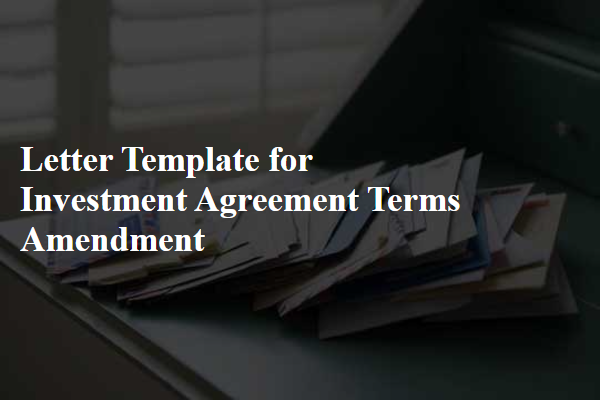
Definition of Amendment Terms
A comprehensive amendment to investment agreement terms requires precision and clarity to ensure both parties understand the changes. Key elements include delineation of amendment scope, specific clauses affected by the amendment, and effective date. Definitions of critical terms like "Investment Amount," referencing the specified monetary contributions, "Equity Stake," denoting the percentage ownership in the venture, and "Return on Investment (ROI)," measuring the financial benefits relative to the investment, are essential. Additionally, outlining the procedures for communication concerning the amendments, including notification timeframes and methods, fosters transparency. This ensures both parties, potentially including venture capitalists and startup founders, are aligned on the expectations moving forward while maintaining legal compliance within the jurisdiction governing the agreement.
Parties Involved
Amending investment agreements can be crucial for ensuring that the terms meet the evolving needs of all parties involved. Key entities typically include investors, such as venture capital firms or angel investors, who provide financial backing, and companies, which are often startups or established businesses seeking capital infusion for growth. The amendment process should identify specific clauses being altered, including funding terms, equity stakes, profit-sharing ratios, or payment schedules. Additionally, critical deadlines must be enforced to ensure timely transactions and compliance, with a clear stipulation of the amendment's effective date, ensuring all involved parties--investors and businesses--understand their new obligations and rights within the revised agreement framework. Legal counsel is often advisable to ensure compliance with applicable securities laws and corporate governance regulations.
Effective Date of Amendment
An investment agreement amendment alters the terms of the original contract between parties, signifying updates such as changes to investment amounts, interest rates, or conditions. The effective date specifies when these modifications take effect, often correlating with the sign date. For example, an agreement may state that amendments take effect immediately upon signing or on a specified date like January 1, 2024. Clarity regarding this date ensures all parties understand when new terms apply, facilitating a smoother transition and maintaining transparency in financial dealings. Proper documentation is crucial to avoid any potential disputes related to these changes.
Signature and Acknowledgment
Investment agreement amendments often require clarity and precision. The section typically addresses parties' commitment to updated terms, defining signatures' significance. Amendments may pertain to financial terms, responsibilities, or timelines. Accurate acknowledgement ensures all parties understand new stipulations, reducing future disputes. For example, a corporate investor, XYZ Corp, might amend a $1 million funding agreement acknowledging adjusted interest rates or extended timelines for project milestones. Documenting both parties' signatures confirms acceptance of revisions, reinforcing legal validation and mutual consent. Proper execution of this acknowledgment equips all stakeholders with a clear reference for amended agreements, supporting effective collaboration.
Confidentiality and Disclosure Conditions
Confidentiality in investment agreements ensures sensitive information, such as financial statements and business plans, remains protected. Specific terms dictate the obligations of both parties regarding the non-disclosure of proprietary data, typically lasting for a period of two to five years post-termination of the agreement. Disclosure conditions outline circumstances under which information may be shared, including legal requirements or prior written consent from the disclosing party. Entities such as venture capital firms and startup accelerators often utilize these clauses to safeguard competitive advantages in sectors like technology or pharmaceuticals, where intellectual property plays a crucial role in investment attractiveness and business sustainability.

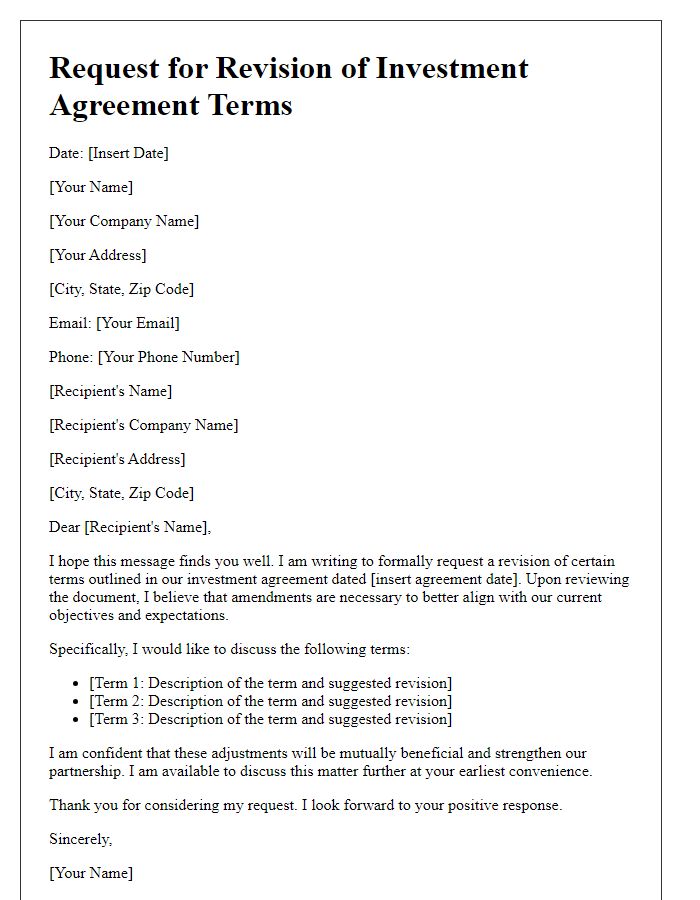
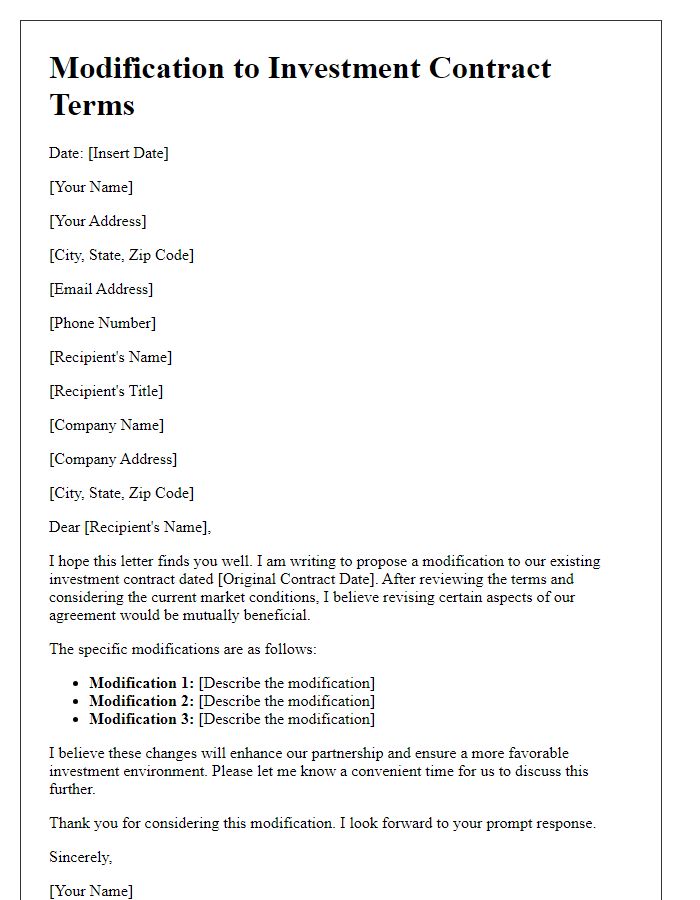
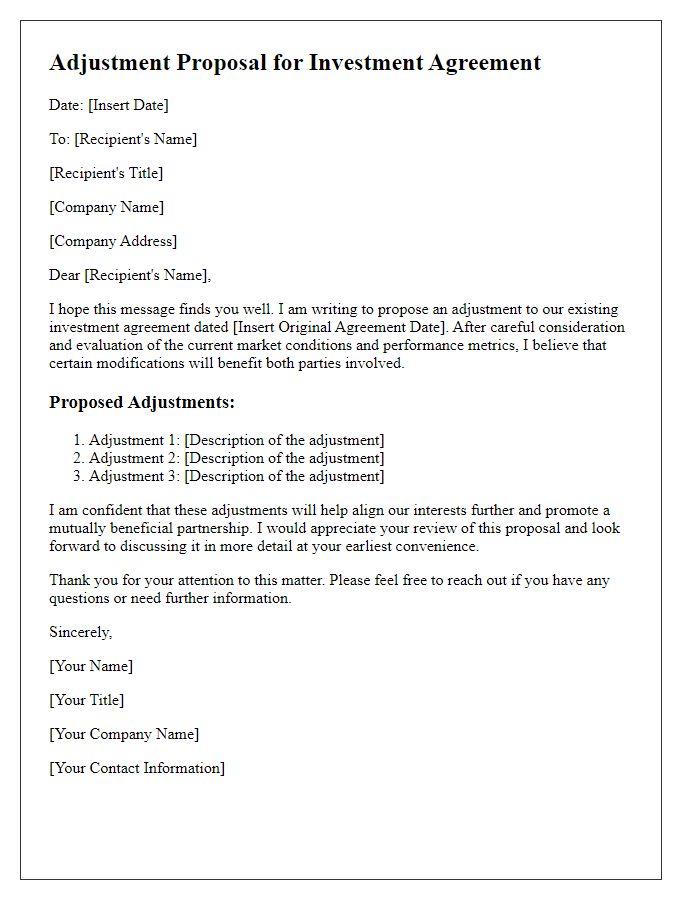
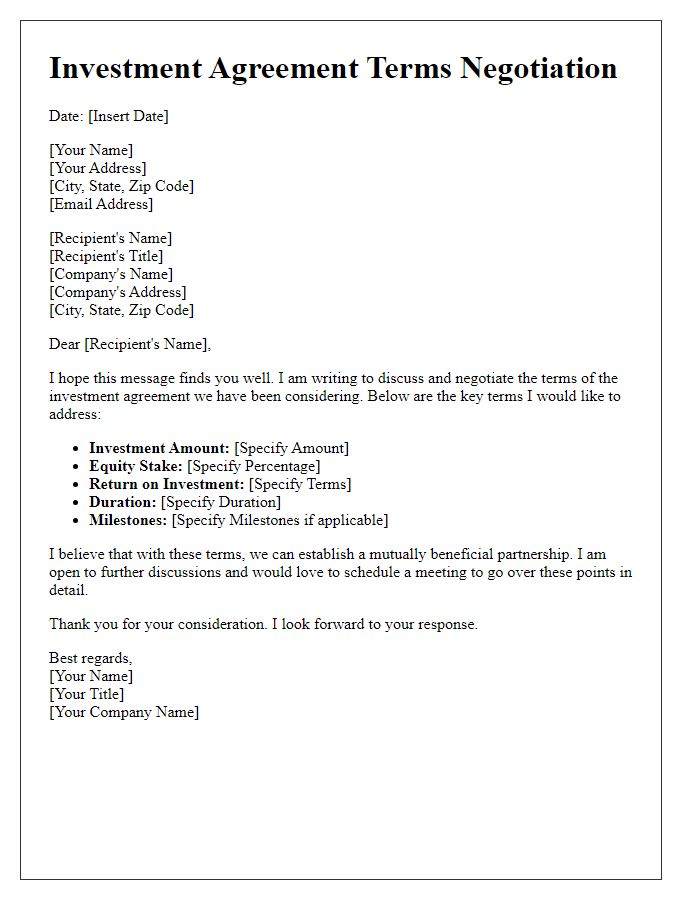
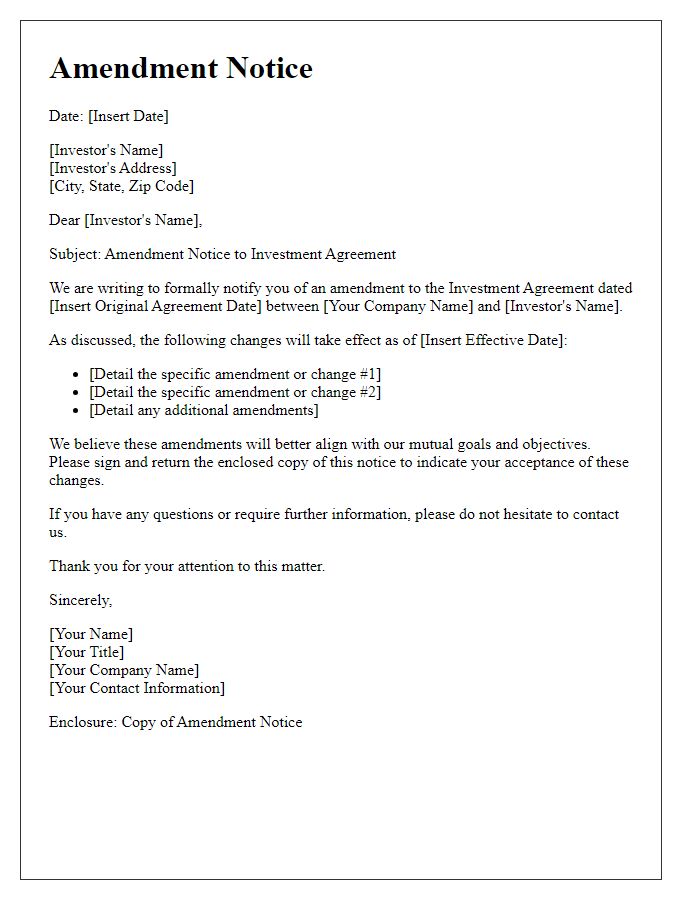
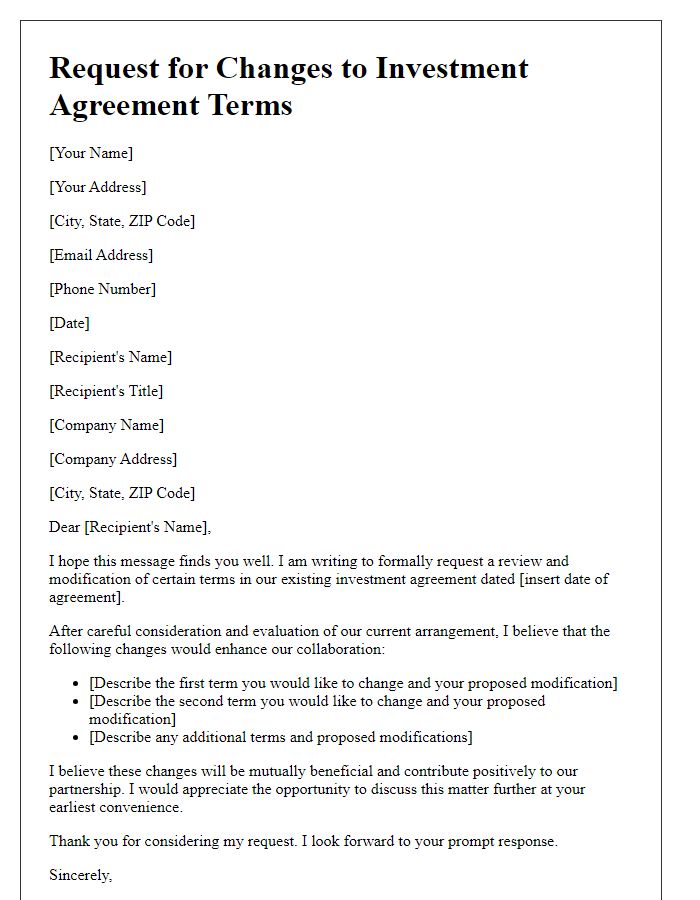
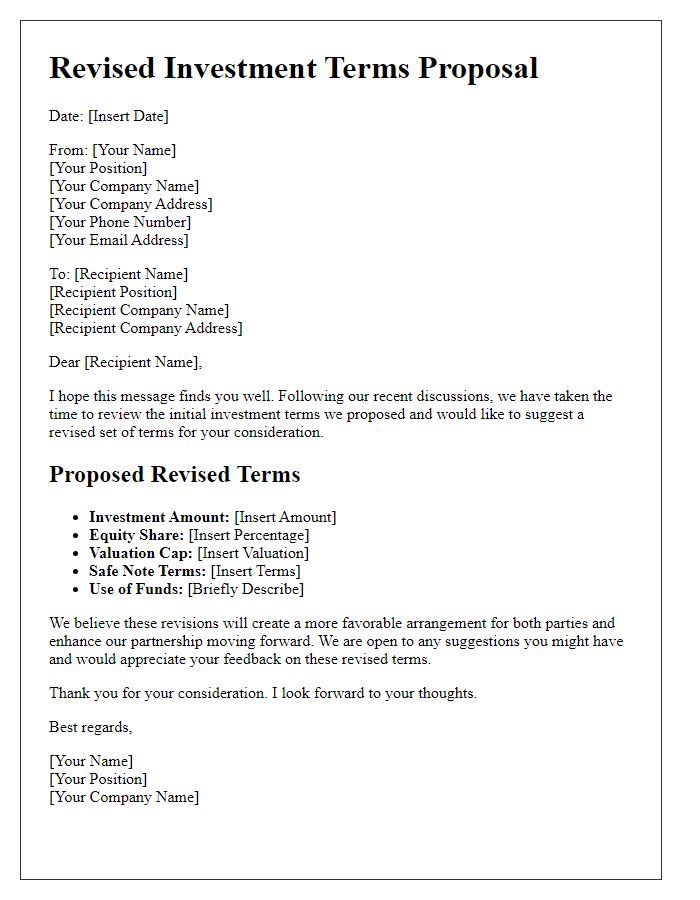
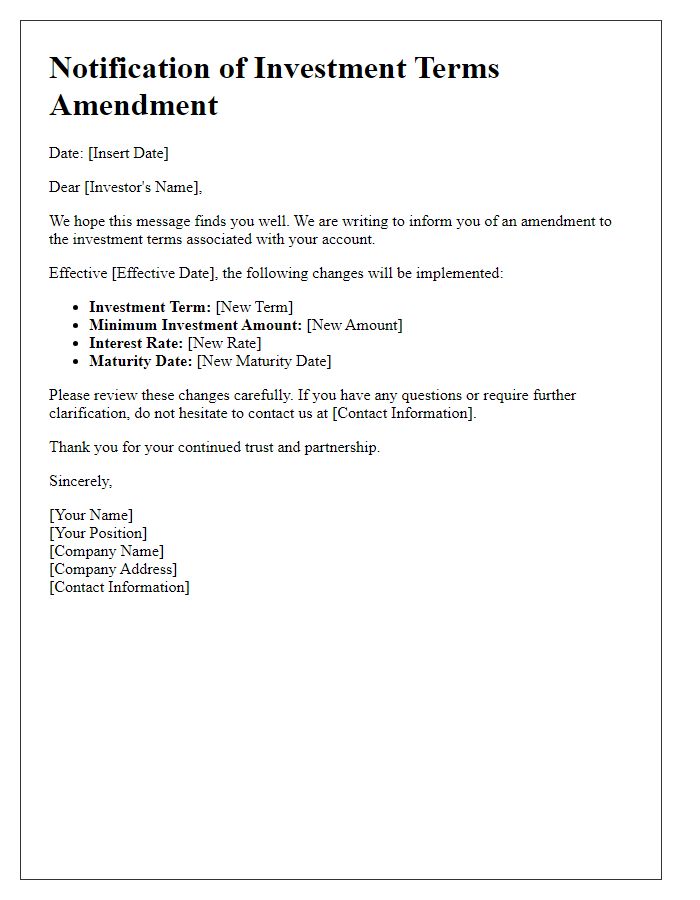
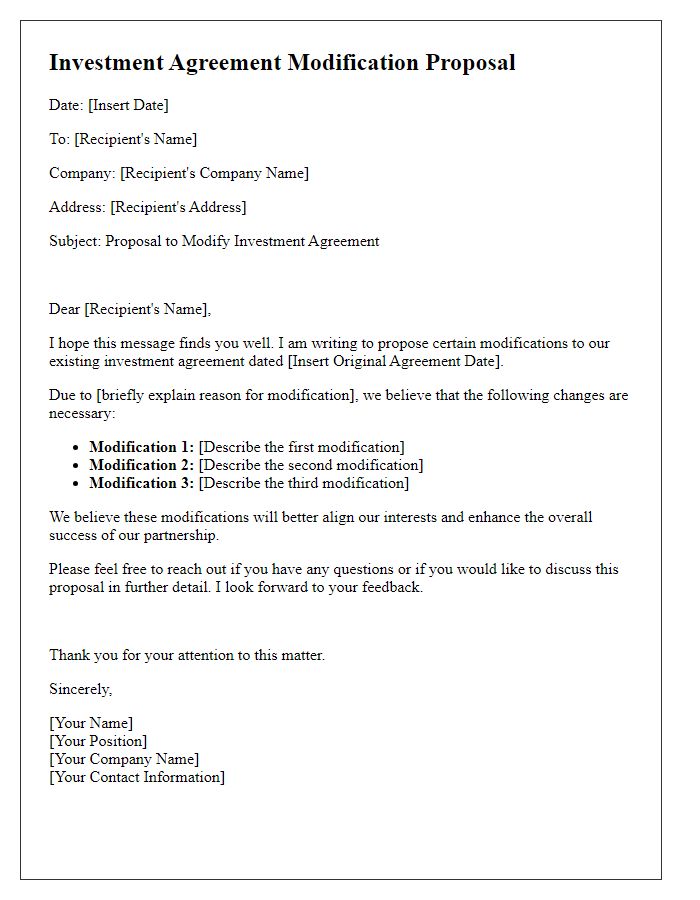
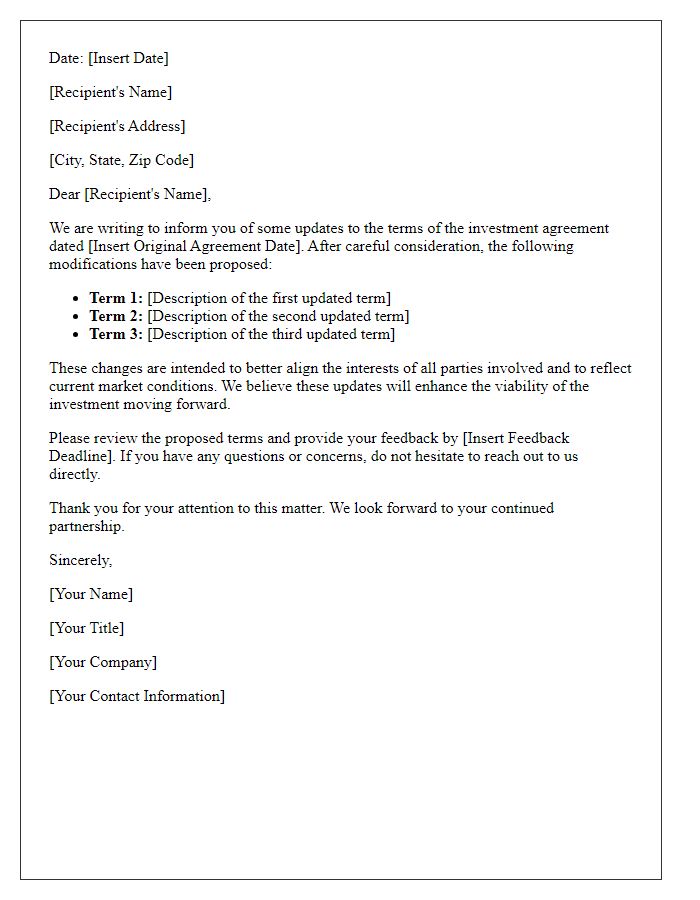


Comments